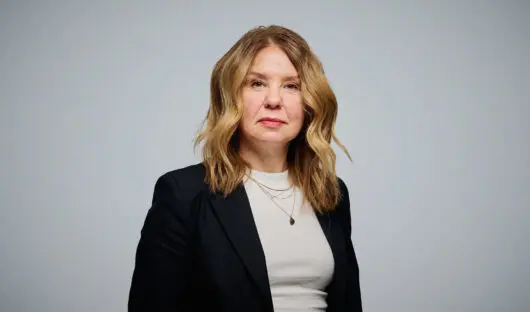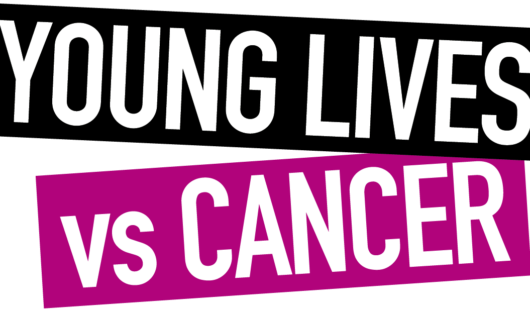Posted on Wednesday 8 November 2023
Young Lives vs Cancer responds to 2022 Under-16 Cancer Patient Experience Survey results
The Under 16 Cancer Patient Experience Survey (CPES) takes place every year and gives children under the age of 16, and their parents or carers, the opportunity to give feedback about their NHS cancer care, to help understand and improve care in England.
The 2022 results show that overall, the majority (89%) of parents and carers rate their child’s overall care as eight out of 10 or higher, and three quarters of children and young people (75%) said that they were looked after very well by healthcare staff.
The results also show that most parents and carers (86%) and young cancer patients (74%) are being provided with information about charities, including Young Lives vs Cancer, which they can talk to about their cancer.
In response to this year’s results, Rachel Kirby-Rider, Chief Executive of Young Lives vs Cancer, said;
“The Under 16 CPES is really important, because it gives children and younger people with cancer and their families the vital opportunity to share their views and experiences which will go on to improve care. We’re pleased to work closely with NHS England on the survey and as a charity will continue to champion this.
“Overall, most rated the care they received positively, and are being signposted to the support that charities like Young Lives vs Cancer offer when a child or young person is diagnosed with cancer, which is a welcome trend. We want our support to reach every child and young person with cancer, and their families.
“However, like last year, this year’s results continue to highlight issues we’ve been calling on the government to address for years, including providing better mental health and financial support, and improving experiences leading to diagnosis. Young Lives vs Cancer, together with CCLG, are calling for a Children and Young People’s Cancer Plan to comprehensively address these areas, as well as campaigning for a Young Cancer Patient Travel Fund to support the costs of travel. We won’t stop until children and young people with cancer and their families get the care and support they need.”
2022 Survey Results – In Detail
Travel to Treatment
When asked about how long respondents had to travel to get to their main treatment centre, more than a third (34%) travelled an hour or more.
Children and young people with cancer often travel regularly to specialist centres to get the treatment and care they need, which are usually far from home. Our #RunningOnEmpty research has shown that on average, young cancer patients and their families travel 350 miles every month throughout their treatment, which comes at a significant cost of £250 every month. With seven in 10 (71%) struggling to meet the costs of their travel, we’re calling on the Government to introduce a Young Cancer Patient Travel Fund to support with the costs of this necessary travel.
Financial Support
When asked about whether they received enough information about how to get financial help and access to benefits they may be entitled to, most respondents (69%) said they did receive enough information. However, this means that not everyone is receiving this important information, with almost a third of respondents (31%) saying they either didn’t get enough information or any information at all.
It’s important everyone knows about the financial support available to them as soon as possible, as it is a vital lifeline for many. Our Cancer Costs research shows that additional costs start immediately and are an extra £700 every month on average. We also know that for benefits like Disability Living Allowance and Personal Independence Payment there are long waiting times delaying payments. To help with these issues, we’ve been calling on the government to provide access to financial support from the point of diagnosis to help young cancer patients and their families with the impact of rising costs that immediately come with receiving a cancer diagnosis.
Getting a Diagnosis
When asked about how many times young cancer patients had to visit their GP before they were told they needed to go to hospital because of their cancer, two thirds of respondents (67%) said they visited their GP more than once, with two in five (41%) visiting their GP three or more times.
It’s vital that signs and symptoms of cancer in children and young people are spotted as early as possible, because the sooner you’re diagnosed, the sooner you can get the treatment you need, and earlier and faster diagnosis can result in better outcomes. Ensuring timely diagnosis is a key priority within our Children and Young People’s Cancer Plan, that sets out ways we can make sure children and young people get their diagnosis quickly, like having the right pathways in place for referrals, and health and care professionals being educated and aware of cancer in children and young people. We’re calling on the government to implement our Plan to improve experiences and outcomes for all.
Mental Health
When asked whether they were provided with information about a psychologist or counsellor that they could talk to about their cancer, around half of respondents (59% or parents and carers, and 54% of children and young people) reported receiving this. This, however, would suggest that more than two in five are not receiving information about psychological support available to them. As part of the survey, respondents were also asked about whether the Wi-Fi in the hospital met their needs, and more than one in five (22%) said that it didn’t.
We know that cancer has huge impacts beyond clinical care – it can take a toll on the mental health of children, young people and their families as well, and it’s not uncommon to be affected by poor mental health including anxiety and depression during cancer treatment. A whole section of our Children and Young People’s Cancer Plan is dedicated to supporting psychosocial needs, including having access to evidence-based, person-centred mental health support throughout the treatment pathway for children and young people but also their families as well. We also want to see all hospitals having good Wi-Fi access so that young cancer patients can maintain connections that are important to them and access support and education services.

